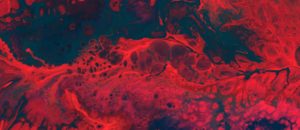In this blog: Symptoms & signs of iron deficiency, possible reasons for deficiencies and effective ways of supplementing. Including what to eat, when and how to supplement. As well as lifestyle and dietary changes to maximize your absorption! Enjoy the read!
Iron deficiency is one of the most common deficiencies around the globe and most often affects women, vegans/vegetarians and endurance athletes. Iron is essential for our health as it creates hemoglobin, the protein found in red bloods cells responsible for carr
ying oxygen throughout our body. Without this vital nutrient our cells do not receive the oxygen and energy they need to operate optimally and symptoms begin to occur.
Iron is a mineral that our body stores as it is not always readily available in one’s diet. Thus, it may take months or even years for one to become truly deficient and for warning signs to become apparent. As it is a slow process, these signs and symptoms are easily missed.
Key signs of iron deficiency can include:

- Lethargy
- Chronic fatigue
- Dizziness
- Paleness
- Troubles concentrating or headaches
- Mood imbalances
- Bruising easily
- Brittle nails
- Tongue swelling
Common causes of iron deficiency
- Inadequate intake of iron
- Pregnancy or heavy menstruation
- Inability to absorb iron
- Low stomach acid & acidic diet
- Depleted microbiome
- Not taking iron with vitamin C
- Internal bleeding
- Blood loss or blood donation
- Poor liver health
- High stress or inflammation
In this article we will deep dive into iron deficiency, key sources of iron and the connection between poor digestive health and the inability to absorb iron effectively.
Understanding why you are iron deficient is the first step.
Is your diet low in iron, are you a vegan or have you recently reduced your animal meat intake? Are you a female with heavy menstrual cycles? Are you a runner who has recently increased their mileage or activity level?
If so, the first step is to increase your intake through iron rich foods. Iron deficiency is most often highest in diets with low consumption of animal protein. Red meat, poultry and fish are rich sources of heme iron, the most absorbable form. Vegetarian sources of iron are nonheme and are not as easily absorbed by the body. For increased absorption of iron, eat both heme and nonheme foods together.
Foods high in iron:
- Red meat: (lamb & venison have the highest amounts)
- Dark leafy greens (spinach, collard greens, kale, swiss chard)
- Poultry & eggs
- Legumes: beans & lentils
- Oats
- Black strap molasses
- Raw nuts and seeds (pumpkin seeds, cashews, hemp seeds)
On top of increasing iron rich foods, supplementation should be implemented if iron deficient. Men should supplement minimum 15-25mg of iron daily and women 18-30mg daily. To replace depleted stores of iron, supplementation should be sustained for 6 months after iron levels have returned to normal.
Best time to supplement? If your stomach can handle it, iron is best absorbed on an empty stomach to ensure other nutrients are not competing for absorption, especially calcium, zinc and caffeine.
Iron is also best absorbed in the morning, especially if you are an athlete. This is because hepcidin levels (an iron inhibiting enzyme) rise throughout the day. Exercise and inflammatory triggers release and cause hepcidin to rise, suppressing your body’s ability to absorb iron.
* Tip: If you exercise early mornings, take your iron supplement within 30 minutes of when you exercise for best absorption.
My two favorite iron supplements:
*These are my two most recommended as they are made with whole food sources and are more bioavailable. They also have vitamin C and B12 built into them for optimal absorption.
So you’re taking iron supplements and you’re eating iron rich foods but for some reason your iron and energy levels are still at rock bottom? Does this sound like you? Unfortunately, there are many other factors that could be inhibiting increased iron levels.
First, are you consuming your iron with vitamin C, another form of ascorbic acid or does your supplement have at least 250mg of vitamin C built into it? No? Add some lemon to your water or eat dark leafy greens with your iron as vitamin C is essential for uptake by your intestinal cells.
Second, are you consuming your iron with other key minerals or beverages that may inhibit its absorption? Calcium, zinc, magnesium and copper can compete for absorption with iron. Particularly calcium, thus avoid consuming your iron intake with calcium rich foods such a milk, cheese, bok choy, whey protein and calcium supplements. Are you taking your iron or other supplements with coffee or other caffeinated beverages? If so, you may be limiting its absorption as caffeine and tannins inhibit the absorption of iron. Furthermore, as coffee and black teas are diuretics they can strip key minerals and nutrients from your body, eliminating them through your urine. When taking supplements or eating, avoid caffeine within 90 minutes to support increased absorption.
Third, how strong is your intestinal health? Did you know that the majority of your dietary iron is absorbed in your small intestine and with the help of your microbiome? Thus, understanding the integrity and health of your entire digestive system and ensuring a nutritious diet is key to supporting your iron deficiency.
Also known as microbiome, the average human has approximately 100 trillion of these microbes in their intestinal tract and they are responsible for a multitude of processes. In the gut, your microbiome is essential in producing and absorbing a number of key nutrients. These include amino acids, calcium, magnesium, and of course, iron. Without a healthy microbiome and intestinal tract, your body is unable to effectively absorb the true amount of iron that you have made available to it. Not sure the strength and population of your microbiome? Understand key factors that deplete your microbiome and harm your GI; stress, infections, bottle-feeding, pharmaceuticals, antibiotics, acidic/inflammatory diets and more. To increase your body’s natural microbiome introduce a high potency, fridge stable probiotic of minimum 50 billion (11 strains + is best) and take once daily with a meal (preferable high in fibre as this is what the microbes feed off of).
To support digestive health, introduce a more alkaline diet packed with whole foods, rich in fibre, vegetables, unsaturated fats and be sure to choose high quality animal meats. The best way to boost to absorption and digestion – herbal bitters (we make them in house at Zen & Tonic!). Also, reduce your acidic food intake including packaged and fried foods, dairy and processed meat consumption. If you need to take antibiotics, finish them, then immediately after introduce a round of probiotic supplementation. Not only is your microbiome essential for iron absorption, but also for your immune health, mental health and so much more!
If you are suffering from low iron, simply increasing your iron intake or supplementation may not be enough. Increasing and improving your digestive health is key in order to ensure optimal absorption and utilization of iron. Thus, in addition to increasing the amount of iron rich animal and vegetarian foods sources, it is also imperative to decrease inflammatory foods that may inhibit iron absorption. Furthermore, boosting your gut’s microbiome, reducing stress and being aware of the various factors your body needs to absorb iron optimally. Not only will these factors improve iron absorption, but your overall health, energy levels and vitality!
*Please note, too much iron in our body can be very damaging as it puts a large load on our kidneys to process. Thus, if you are unsure if you are iron deficient, please have your blood levels and ferritin tested.
More questions? Or maybe you’re ready to embark on your journey to health or learn about preventative health? I’m here and ready to help!
*present this article and receive %15 off your treatment!


